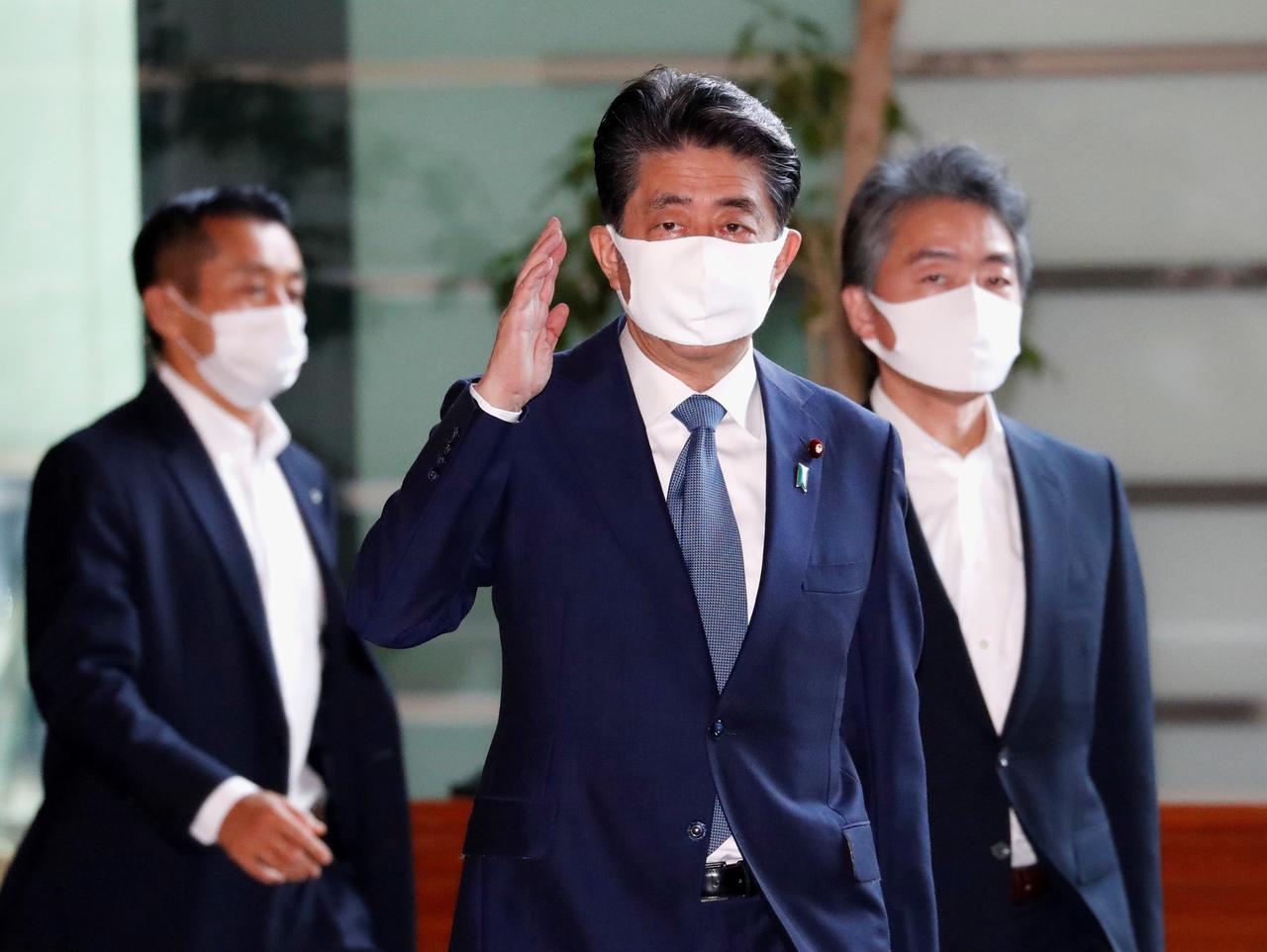TOKYO -- Prime Minister Shinzo Abe, Japan’s longest-serving premier, said on Friday he was resigning because of poor health, ending a stint at the helm of the world’s third-biggest economy during which he sought to revive growth and bolster its defences.
“I cannot be prime minister if I cannot make the best decisions for the people. I have decided to step down from my post,” Abe, 65, told a news conference.
Abe has battled the disease ulcerative colitis for years and two recent hospital visits within a week had fanned questions on whether he could stay in the job until the end of his term as ruling party leader, and hence, premier, in September 2021.
As news of the resignation spread, Japan's benchmark Nikkei average .N225 fell 2.12% to 22,717.02, while the broader Topix .TOPX shed 1.00% to 1,599.70. The selling wiped $4.7 billion off Tokyo's $5.7 trillion stock market value, which had more than doubled during Abe's tenure.
The resignation will trigger a leadership race in the ruling Liberal Democratic Party (LDP) - most likely in two or three weeks - and the winner must be formally elected in parliament. The new party leader will hold the post for the rest of Abe’s term.
Whoever wins the party poll is likely to keep Abe’s reflationary “Abenomics” policies as Japan struggles with the impact of the novel coronavirus, but may have trouble emulating the political longevity that may be Abe’s biggest legacy.
“The broad picture remains in tact. In terms of economic and fiscal policy, the focus remains very much on reflation,” said Jesper Koll, senior adviser to asset manager WisdomTree Investments.
“Longevity will be a struggle.”
On Monday, Abe surpassed a record for longest consecutive tenure as premier set by his great-uncle Eisaku Sato half a century ago.
“As head of the ruling party he worked hard on Abenomics for eight years,” said brokerage employee Naohito Kojima, 55.
“There were various problems but if someone else had been leader, it’s questionable whether they could have maintained a stable government as long as Mr Abe. He did various diplomatic negotiations and I think the pros outweighed the cons.”
Abe’s resignation also comes amid an uncertain geopolitical environment, including an intensifying confrontation between the United States and China and ahead of the U.S. presidential election in November.



















































